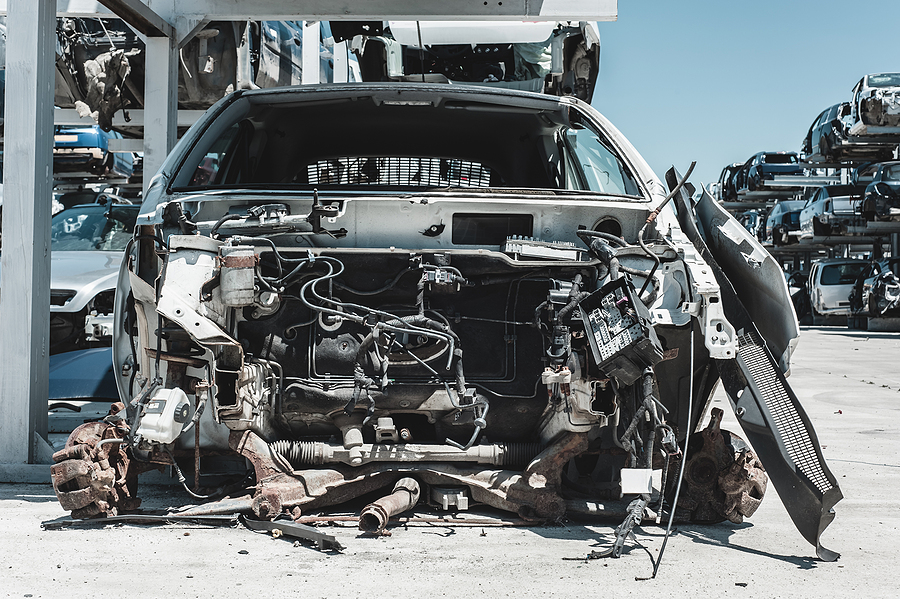In our quest to build a greener planet, an often overlooked yet crucial domain is automotive recycling. This is not only a sustainable strategy to manage vehicular waste but also promotes resource conservation in the automotive manufacturing sector. With millions of vehicles reaching the end of their life cycle each year, automotive recycling presents a unique, Eco-friendly approach to waste management, turning scrap auto parts into valuable resources.
This blog post will delve into the world of automotive recycling, highlighting the roles of automotive recyclers and the environmental implications of repurposing scrap auto parts. Join us as we explore how this Eco-conscious practice is driving us towards a sustainable future.

The Importance of Automotive Recycling
Automotive recycling is the process of dismantling, recovering, and reusing end-of-life vehicles or their parts. This practice not only reduces the amount of waste produced by retired vehicles but also minimizes the need for new raw materials in automotive manufacturing. According to the Automotive Recyclers Association (ARA), approximately 80% of a vehicle can be recycled, making automotive recycling one of the most efficient and environmentally friendly waste management solutions.
The Role of Automotive Recyclers
Automotive recyclers play a significant role in the junk car and car part recycling process. These professionals are responsible for dismantling end-of-life vehicles and sorting the various parts for reuse or recycling. Through their expertise, they ensure that valuable materials such as steel, aluminum, and other metals are reused instead of ending up in landfills. They also safely dispose of hazardous materials found in vehicles, such as batteries, Freon, and oil, preventing potential environmental pollution.
Repurposing Scrap Car Parts
One of the primary benefits of automotive recycling is the repurposing of scrap auto parts into valuable resources. For instance, steel from retired vehicles can be recycled and used to manufacture new car frames, while aluminum can be melted down and repurposed for various uses. This not only reduces the need for new raw materials but also conserves energy and reduces CO2 emissions involved in the production of new parts.
Best Auto Parts to Recycle:
Junk Cars – Junk cars are worth a whole lot of cash. And professional auto scrappers will provide free junk car removal, which means more money in your pocket. Other junk car buyers and auto salvage lots might charge you for this service, or quietly deduct it from whatever cash offer they gave you at the time of estimate.
Batteries – Recycling car batteries is one of the best ways to help reduce the amount of waste in landfills. Car batteries contain a variety of toxic materials, including lead and sulfuric acid, which can leak into the soil and water if not disposed of properly. By recycling old car batteries, you can help keep these materials out of landfills and ensure that they are recycled safely.
Tires – Tires are another great item to recycle at a scrap yard. Old tires can take up a lot of space in landfills and can also be difficult to break down naturally. Recycling tires helps to reduce the amount of space used in landfills and also helps to keep them from ending up as litter on roads or other areas where they could be hazardous.
Oil Filters – Oil filters are another great item to recycle as they contain a variety of metals and other materials that can be reused or recycled. Oil filters should always be drained before being recycled as they often contain residual oil, which is hazardous if it leaks out into the environment.
Brake Pads – Brake pads are made from a variety of materials, including rubber, metal, and plastic, all of which can be recycled at an auto scrap yard. Recycling brake pads helps to reduce the amount of waste going into landfills while also helping to preserve natural resources by reducing the need for new materials to make replacement brake pads.
Environmental Advantages
Apart from reducing waste and promoting resource conservation, automotive recycling also has significant environmental advantages. By diverting waste from landfills, it reduces the amount of greenhouse gases produced and minimizes soil and water pollution. Additionally, since automotive recycling uses less energy compared to manufacturing new parts from raw materials, it also helps reduce carbon emissions.
Final Thoughts
In conclusion, automotive recycling is an essential aspect of waste management that promotes a more sustainable future. As consumers, we can support this Eco-friendly approach by choosing to recycle our end-of-life vehicles and purchasing recycled auto parts whenever possible. By doing so, we can contribute to reducing waste, conserving resources, and preserving the environment for generations to come.
Ready to join the movement towards a greener planet through automotive recycling today? Contact GC’s Junk Cars at 513-991-4776 to recycle automotive scrap and junk cars in Cincinnati, Ohio. We offer free towing for scrap vehicles and pay cash on the spot!
Related Posts:
The Benefits of Auto Recycling for the Environment
Common Misconceptions About Auto Salvage
Where to Find the Best Cash For Cars Company in Ohio
